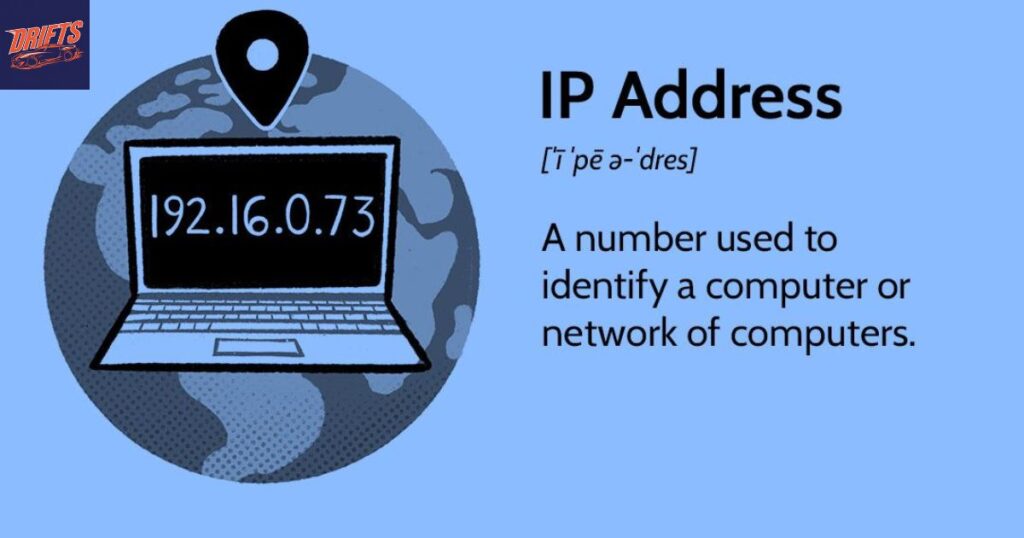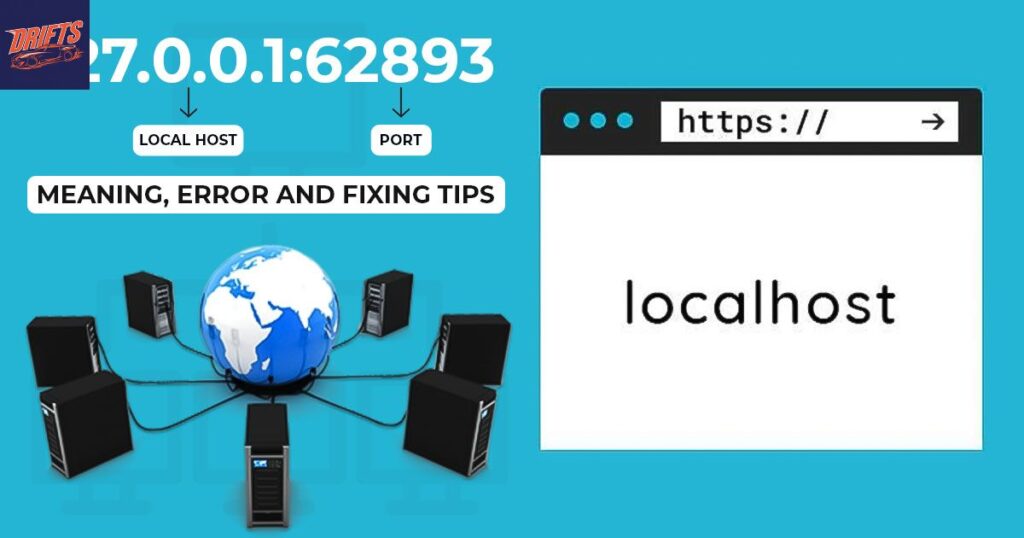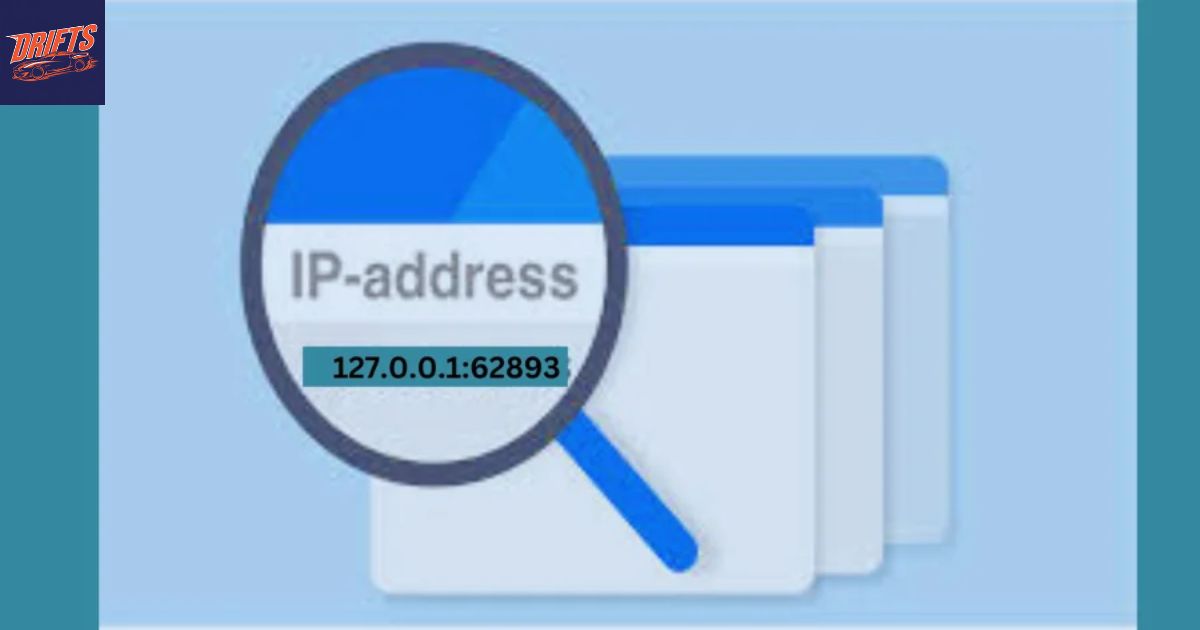The combination of the IP address 127.0.0.1 and the port number 62893 is a common setup used for local testing and development purposes.
The 127.0.0.1 address, known as the “localhost” or “loopback” address, refers to the local machine itself, while the port number 62893 is a specific communication channel used by a particular application or service.
By understanding the significance of this configuration and leveraging the power of the localhost, developers and IT professionals can create a secure, reliable, and efficient environment for testing and troubleshooting their applications, leading to more seamless deployment and a better user experience.
What Does 127.0.0.1:62893 Represent?
127.0.0.1:62893 is a combination of an IP address and a port number that is often used for local testing and development purposes. The IP address 127.0.0.1 is known as the “localhost” or “loopback” address, which refers to the computer or device itself.
The port number 62893 is a specific port that a particular application or service may be using for communication.
Learn More About IP Addresses

IP addresses are numerical labels assigned to each device connected to a network. They are essential for identifying and communicating with devices on the internet or a local network. The most common IP address format is the IPv4 standard, which uses a 32-bit number typically expressed in four octets separated by periods, such as 127.0.0.1.
Learn More About Port Numbers
Port numbers are used to identify specific communication channels or services on a device. They are typically associated with a specific application or protocol, allowing multiple applications to use the same IP address while communicating over different ports.
Port numbers range from 0 to 65535, and some common port numbers are well-known, such as port 80 for HTTP and port 22 for SSH.
Uses of Localhost
The localhost address, 127.0.0.1, is commonly used for various purposes, including:
- Local testing and development: Developers often use 127.0.0.1 to test their applications or services on their own machines without the need for a network connection.
- Accessing local services: Many applications and services, such as web servers, databases, and others, can be accessed using the localhost address.
- Troubleshooting network issues: Localhost can be used to isolate network problems by testing the local machine’s connectivity and identifying any issues.
- Secure communication: The localhost address is often used for secure, local communication between applications or services, as it does not expose the machine to the public internet.
Tools for Managing Localhost and Ports
There are several tools available for managing and working with localhost and port numbers, including:
- Task Manager (Windows) or Activity Monitor (macOS): These built-in system tools can help you identify which processes are using specific port numbers on your local machine.
- netstat (Windows) or lsof (macOS/Linux): These command-line tools can provide detailed information about network connections and the ports being used.
- Process Explorer (Windows) or Activity Monitor (macOS): These more advanced system monitoring tools can help you visualize and manage running processes and their associated port usage.
- Browser developer tools: Most modern web browsers include developer tools that can help you inspect and debug network connections, including those made to localhost.
Advantages of Using 127.0.0.1:62893

Using 127.0.0.1:62893 for local testing and development offers several advantages:
- Isolation: The localhost address ensures that the communication is confined to the local machine, reducing the risk of exposing sensitive information or applications to the public internet.
- Reliability: Localhost connections are generally more reliable and stable than connections to external servers or services, as they are not subject to network latency or outages.
- Performance: Localhost connections are typically faster and have lower latency than connections to remote servers, as they do not involve data transmission over a network.
- Security: Localhost connections are inherently more secure, as they do not expose the local machine to external threats or unauthorized access.
Working of 127.0.0.1:62893
When an application or service is configured to use 127.0.0.1:62893, it means that the application is listening for incoming connections on port 62893 of the local machine.
Any requests made to 127.0.0.1:62893 will be routed directly to the local machine and processed by the application or service running on that port.
This setup is commonly used during development and testing, as it allows developers to test their applications without the need for a network connection or deployment to a remote server.
Read This Blog: The Timeless Elegance: Gal Gadot Wedding Dress Unveiled
Resolving Issues with 127.0.0.1:62893

If you encounter issues with 127.0.0.1:62893, the first step is to identify the underlying problem.
This may involve checking for conflicts with other applications or services using the same port, network configuration issues, or problems with the application itself.
Once you’ve identified the issue, you can take steps to resolve it, such as closing any other applications or services that may be using the same port number, checking the application’s configuration to ensure it’s using the correct port, updating the application or operating system to the latest version, or consulting the application’s documentation and developer community for guidance on troubleshooting the problem.
Resolving issues with 127.0.0.1:62893 is crucial for ensuring your local testing and development environment functions smoothly and reliably.
Identifying the Issue
If you encounter issues with 127.0.0.1:62893, the first step is to identify the underlying problem.
This may involve checking for conflicts with other applications or services using the same port, network configuration issues, or problems with the application itself.
Resolving the Issue
Once you’ve identified the issue, you can take steps to resolve it, such as:
- Closing any other applications or services that may be using the same port number.
- Checking the application’s configuration to ensure that it’s using the correct port number.
- Updating the application or the operating system to the latest version to address any known issues.
- Consulting the application’s documentation or seeking support from the developer community for guidance on troubleshooting the issue.
Fixing the “Disconnected From The Target VM, Address: 127.0.0.1:62893” Error
This error message typically indicates that the application or service you’re trying to access on 127.0.0.1:62893 is not running or is not accessible.
Read This Blog: Secrets in Bloom: The Intriguing World of ‘The Flower of Veneration Chapter 1’
To resolve this issue, you can try the following steps:
- Ensure that the application or service is running and listening on the correct port.
- Check for any firewall or security settings that may be blocking access to the localhost address or the specific port.
- Verify that there are no other processes or applications using the same port number.
- Restart the application or the machine to see if that resolves the issue.
Is Port 62893 accessible to the public?
No, port 62893 is not intended to be publicly accessible. The localhost address (127.0.0.1) is a special IP address that is used for internal, local communication and is not accessible from the public internet.
Unless specifically configured to do so, applications and services using 127.0.0.1:62893 are not exposed to the public and are only accessible from the local machine.
FAQ’s
What is the purpose of the 127.0.0.1 IP address?
The 127.0.0.1 IP address, also known as the “localhost” address, is used for local, internal communication on a single computer or device. It is not accessible from the public internet and is primarily used for testing, development, and troubleshooting purposes.
What is a port number, and why is it important?
A port number is a 16-bit value (ranging from 0 to 65535) that is used to identify specific communication channels or services on a device. Port numbers are essential for allowing multiple applications to use the same IP address while communicating over different ports.
How can I identify which processes are using a specific port number on my machine?
You can use system tools like Task Manager (Windows) or Activity Monitor (macOS) to identify the processes that are using specific port numbers on your local machine. Additionally, command-line tools like netstat (Windows) or lsof (macOS/Linux) can provide more detailed information about network connections and port usage.
What are the advantages of using the 127.0.0.1 address for local testing and development?
Using the 127.0.0.1 address for local testing and development offers several key advantages, including isolation, reliability, performance, and security.
How can I resolve issues related to 127.0.0.1:62893?
To resolve issues related to 127.0.0.1:62893, you can start by identifying the underlying problem, such as conflicts with other applications or services using the same port, network configuration issues, or problems with the application itself.
Conclusion
Understanding the significance of 127.0.0.1:62893 and how to effectively manage it is crucial for developers and IT professionals who work in the realms of local testing, development, and troubleshooting.
By harnessing the power of the localhost address and port numbers, you can create a secure, reliable, and efficient environment for your applications and services, ultimately leading to more seamless and effective testing and deployment processes.

Hello!
I’m Areej, a passionate blogger with 5 years of experience. I love writing about tech, fashion, business, and health. My goal is to share useful information and insights with you. Explore my website to discover exciting content on various topics!












